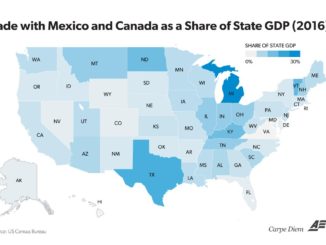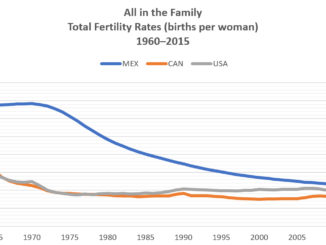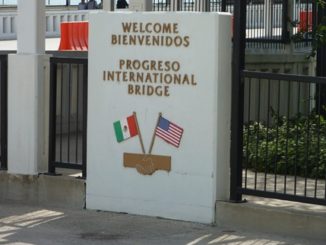
Lower taxes on imports from trade deals save the average U.S. household about $10,000 a year.
Donald Trump attacks the longstanding Republican promotion of trade as an engine of growth. The Republican presidential nominee asserts that trade produces winners and losers, that a country should always send more value abroad than it imports, and that America is thus a trade “loser.” Whether he wins the election or not, Mr. Trump’s protectionist views are forcing elected leaders—especially in the Republican Party—to decide whether to continue championing free trade or give up on opening markets.
Wavering politicians should check their bearings by reviewing what voters think about trade. A July WSJ/NBC poll revealed that 55% of registered voters think free trade is good for America because it opens up markets for U.S. goods, while 38% consider it bad. A September 2015 Gallup poll found that only 18% of Americans said leaving the North American Free Trade Agreement would help the economy. Polls by the Chicago Council on Global Affairs in 2014 and 2015 found that Americans supported the negotiations for trans-Atlantic and trans-Pacific trade by 62%-29% and 64%-29%, respectively. While other polls show more muddled results, at a minimum Republicans would be prudent not to assume voters will join Mr. Trump’s retreat on trade.
Mr. Trump’s complaints are contradicted by the facts. The U.S. has free-trade agreements with 20 countries that account for 10% of the global economy. These deals are the basis for nearly half of America’s exports. In the first five years after the U.S. has concluded free-trade agreements, U.S. exports have increased three times as rapidly as overall export growth. Over the past five years the U.S. has, with its free-trade partners, run a trade surplus for manufactured goods of about $230 billion, according to the Commerce Department. America’s farmers and ranchers boosted their exports to free-trade partners by 130% between 2003-13, to $56 billion. One of every three acres of crops planted in America is for export.
Mr. Trump’s concentration on exports alone as “winning” ignores that U.S. businesses import to lower costs for American production. Over 60% of U.S. imports are intermediate goods that go into U.S. products.
It would be foolhardy to force American businesses and consumers to pay more and have less freedom to choose. Lower taxes on imports from trade deals save the average U.S. household about $10,000 a year, according to the Peterson Institute for International Economics. Yet Mr. Trump wants to impose steep tariffs to “win” on trade.
The presidency of Herbert Hoover, the last Republican in the White House to embrace high taxes on imports, offers a cautionary tale. After the 1930 Smoot-Hawley Act’s high tariffs took effect, Hoover achieved the trade surplus that Mr. Trump demands, but also an unemployment rate of 25%—and the Great Depression.
Americans account for only 4% of the world’s population. Many potential customers live abroad. American exporters face tariffs that are, on average, four times the U.S. average, plus a host of nontariff barriers. The modern free-trade agreements that Mr. Trump dislikes have eliminated most traditional barriers while setting higher standards to protect U.S. intellectual property. They’ve also opened doors for U.S. service businesses and small- and medium-size enterprises, established new rules for e-commerce, and promoted anticorruption measures, transparency and environment and labor safeguards.
U.S. multinational businesses pay their employees 25%-30% more than average wages, make about 57% of U.S. capital investment, and are the source of 83% of private R&D. At the same time, 98% of the 300,000 U.S. companies that export are small and medium-size enterprises, and they supply about one-third of America’s exports.
Moreover, those U.S. manufacturing workers whose jobs depend on exports earn on average 18% more than other workers. This wage premium reflects the higher productivity of business and workers who compete around the world. More than 11 million U.S. workers and one million farmers gain from this global competitive edge.
Mr. Trump and other antitraders complain that American manufacturing has declined. Yet the U.S. share of global manufacturing has held at around 20% for 40 years. To compete, U.S. companies have had to boost productivity with new supply chains, technologies and products. As a result, workers have lost jobs. Every month, the U.S. economy creates, and loses, about five million jobs because of innovation, competition, changed consumer tastes—and trade. Republicans should not abandon the world’s most successful economic model because, according to Mr. Trump, Americans are “losers.”
Americans are not losers. But some Americans lose out because economic forces and misfortunes can overwhelm them. Whoever becomes the next president should help people adjust to change, not pretend that change can be prevented. Policy makers should advance ideas to get people back into jobs, assist with their relocation, supplement earned incomes, cut taxes on wages and make useful training and skills upgrades part of ongoing support for economic security.
Mr. Trump indulges in the real loser’s game: Always find someone else to blame. The U.S. became the most successful country in the world because Americans confronted their challenges. When Republican leaders consider their future agenda, they should reject Donald Trump’s losing litany of protectionist ideas and keep opening markets for trade.
Mr. Zoellick is a former World Bank president, U.S. trade representative and deputy secretary of state.



